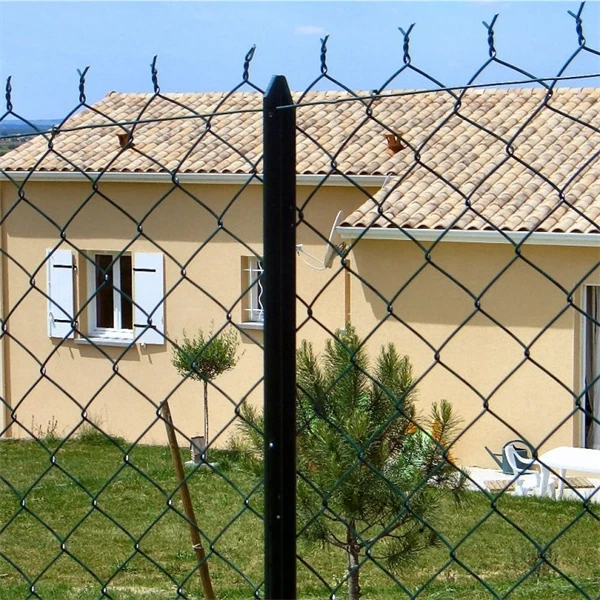Dec . 17, 2024 11:49 Back to list
Explore Affordable Gabion Towers for Your Next Landscape Project
The Benefits of Investing in Gabion Towers A Sustainable Solution
In recent years, the demand for sustainable engineering solutions has surged, leading to innovations in construction and landscaping. One such innovation that has gained significant attention is the gabion tower. Composed of wire mesh filled with stones or other materials, gabion towers are not only aesthetically pleasing but also remarkably functional. This article will delve into the benefits of investing in gabion towers and why you should consider purchasing them for your next project.
Understanding Gabion Towers
Gabions have been used for centuries, primarily in civil engineering and landscaping applications. A gabion tower is essentially a vertical structure made from these wire mesh cages filled with rocks, concrete, or other durable materials. They are typically used for erosion control, retaining walls, noise barriers, and even as decorative elements in gardens and parks. The versatility of gabion towers makes them suitable for various environments, from urban settings to rural landscapes.
Sustainability at Its Core
One of the most appealing aspects of gabion towers is their sustainability. The materials used in gabion construction are often sourced locally, which minimizes transportation costs and reduces carbon footprints. Additionally, gabion structures can be filled with recycled materials, such as concrete rubble or discarded stones, making them an environmentally friendly choice for construction and landscaping.
Moreover, gabion towers promote natural vegetation growth. The gaps within the stone-filled cages allow for soil to accumulate and support plant life, which in turn contributes to biodiversity. This is especially vital in areas that may have been previously stripped of vegetation due to urban development.
Durability and Maintenance
Gabion towers are renowned for their durability. The wire mesh is typically made from corrosion-resistant materials, ensuring that the structure can withstand harsh weather conditions and resist corrosion over time. The natural materials used for filling are often local stones, which provide robustness and stability to the structure.
Another significant advantage of gabion towers is their low maintenance requirements. Unlike traditional masonry or wooden structures, which may require regular repairs or treatments, gabion towers are relatively self-sustaining. The only maintenance typically needed is to ensure that the filled materials remain secure and that vegetation growth is managed as desired.
buy gabion tower

Aesthetic Appeal
While functionality is critical, the aesthetic value of gabion towers should not be overlooked. Their unique design allows them to blend seamlessly into various environments. They can be left in their natural state or finished with decorative stones, plants, or lighting, making them a focal point in gardens, parks, or public spaces.
Moreover, gabion towers can also be designed in various shapes and sizes, allowing for creative architectural expressions. Their versatility permits a combination of both hardscaping and softscaping elements, enhancing overall landscaping goals while providing necessary structural functions.
Cost-Effectiveness
Investing in gabion towers can also prove to be cost-effective. The reduced need for heavy machinery during installation, combined with the minimal maintenance costs, results in significant savings over time. Additionally, the use of locally sourced materials often lowers the overall cost of construction, making gabion towers an economically viable option for many projects.
Versatile Applications
Gabion towers serve numerous applications across various industries. In civil engineering, they are commonly utilized for retaining walls and erosion control, protecting landscapes from soil erosion while ensuring the stability of roads and infrastructure. In landscaping, they create stunning garden features, seating areas, or sound barriers. The architectural possibilities are virtually limitless, making gabion towers an attractive option for builders and designers alike.
Conclusion
In summary, investing in gabion towers offers a multitude of benefits, from sustainability and durability to aesthetic appeal and cost-effectiveness. As urbanization continues to expand, finding eco-friendly and efficient solutions in construction remains crucial. Gabion towers not only meet these demands but also contribute to a greener, more beautiful world. Whether you're a homeowner looking to enhance your garden or a civil engineer tasked with a large-scale project, considering gabion towers could be one of the best decisions you make. By embracing this innovative solution, you can achieve lasting architectural and environmental benefits.
-
Visualizing Gabion 3D Integration in Urban Landscapes with Rendering
NewsJul.23,2025
-
The Design and Sustainability of Gabion Wire Mesh Panels
NewsJul.23,2025
-
The Acoustic Performance of Gabion Sound Barriers in Urban Environments
NewsJul.23,2025
-
Mastering the Installation of Galvanized Gabion Structures
NewsJul.23,2025
-
Gabion Boxes: Pioneering Sustainable Infrastructure Across the Globe
NewsJul.23,2025
-
Custom PVC Coated Gabion Boxes for Aesthetic Excellence
NewsJul.23,2025
-
Installation Tips for Gabion Wire Baskets in Erosion Control Projects
NewsJul.21,2025






